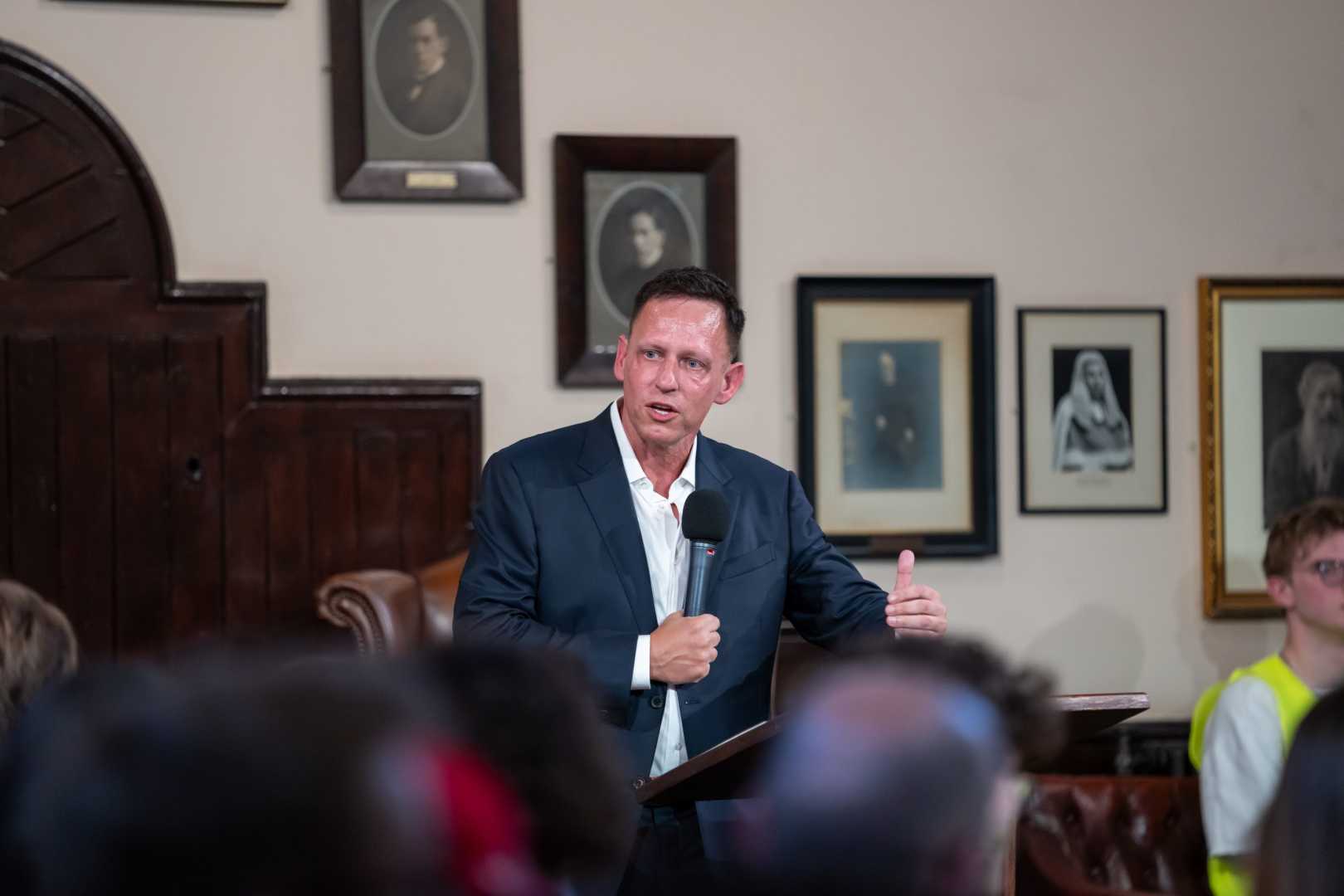Business
Peter Thiel Sparks Controversy with Antichrist Lectures in San Francisco

San Francisco, CA – Billionaire investor Peter Thiel has stirred controversy with a series of lectures in San Francisco where he warned of a potential Armageddon and discussed his views on the Antichrist. The four-part series, which concluded on October 9, focused on who he believes could embody this prophetic figure.
Thiel, a co-founder of PayPal and a prominent figure in Silicon Valley, presented his thoughts to sold-out audiences at the waterfront. He expressed concern that modern societal forces, including international agencies and environmental movements, could be signs of the Antichrist’s presence.
“A basic definition of the Antichrist is an evil king or tyrant who appears in the end times,” Thiel stated during his opening lecture on September 15. His views, blending religious beliefs with political commentary, have sparked debates over the future of technology and governance.
Thiel describes himself as a “small-o orthodox Christian.” He explained that the Antichrist might not be a single figure, but rather represented by those who oppose technological progress. He specifically mentioned climate activist Greta Thunberg and AI critic Eliezer Yudkowsky as potential representatives of this anti-scientific force.
“In the 21st century, the Antichrist is a Luddite who wants to stop all science,” Thiel argued, while also voicing concerns about overregulation in technology. His comments have drawn criticism, pointing out the perceived hypocrisy given his investments in tech companies that leverage data and surveillance.
Throughout the lectures, Thiel referenced historical figures and concepts from various fields, arguing that the Antichrist could use societal fears to amass power, particularly over existential risks posed by climate change and artificial intelligence. He suggested that such fears could lead to a one-world government under the guise of security.
As evidenced by the lectures, Thiel’s focus was wide-ranging, incorporating elements from literature and philosophy while maintaining a narrative about impending global threats. Tickets for the lecture series sold out within hours, and attendees were required to keep the events off the record, leaving many details to leaks and reported sources.
Protesters gathered outside the final lecture, holding signs against Thiel’s affiliations and raising concerns about his companies. Inside, the mostly young audience listened as Thiel drew comparisons between contemporary political figures and his interpretation of biblical prophecies.
In his concluding remarks, Thiel echoed the complexity of identifying the Antichrist while warning that the world was heading toward a potential stagnation influenced by fear-driven policies. With thoughts on geopolitics and power, he posited that the U.S. could either be a hindrance to or a catalyst for global change.
Reflecting on his beliefs, Thiel left audiences questioning the nature of progress, governance, and the future of technology. He captures the concerns of many in an age where the implications of technological advancement collide with moral and philosophical dilemmas.












